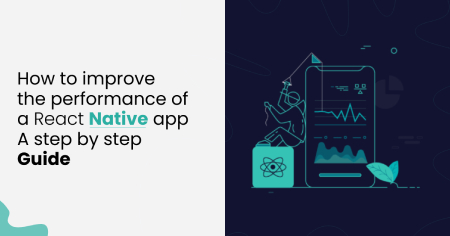Developers are required to assist businesses in realizing their online fantasies.
Depending on the project, they must choose between a specialized developer and a full stack developer. Specialized developers are either the back end or the front end. On the other hand, a full-stack developer is knowledgeable in both back-end and front-end development.
By the end of this article, you will have a clear picture of these developers and be able to select the best developer for your web application development projects.
Which is more beneficial to your company: specialized developers or full-stack developers? Let us look at the benefits, drawbacks, and essential characteristics of both types of developers.
Full-stack developer's skills

Full-stack developers are in high demand now and will be in the future. According to the Bureau of Labor Statistics, full-stack developer jobs are expected to grow from 135,000 in 2016 to 854,000 in 2024. Full Stack development is not going away. Professionals with experience earn up to $110,738 annually, making it one of the highest-paying jobs. Based on their scores, the entire stack developer job is ranked second.
A full-stack developer acknowledges UX design, web application development, and app development; however, specialized app developers may be better suited for a high-quality web app or mobile app.
Full-stack developers must be skilled in the following areas:
- GitHub and Git
- CSS/HTML
- Web architecture
- REST and HTTP
- Javascript
- Basic Design Skills
- Database Storage
- Design software skills
- NPM
- Back-end programming languages
- Ruby
- Python
- PHP
- Java
Benefits of Full-stack developers

-
They can quickly learn new information.
Learning new ideas and technologies benefits full-stack developers greatly. Because of their extensive knowledge of fundamentals, they have advanced to the level of experienced developers in web application development. -
Low Cost
One developer's budget could cover back-end and front-end development if you hire a full-stack developer. If your team includes a full-stack developer who can create web applications, there is no need to hire multiple people.
When deciding which role to fill, a full-stack developer may be less expensive for your company than a specialist developer. Hiring a full-stack developer rather than a front-end developer or a back-end developer would be less expensive. -
Issues are quickly identified.
Because they are familiar with all stages of software development, full-stack developers can quickly identify and resolve product issues. They can reduce time-consuming tasks and promptly resolve problems in web application development. -
Quick Learners
Full-stack developers are fast learners who quickly grasp new concepts. Believe me when I say that new ideas can be easily taught. -
Reduced Development Time
Full-stack developers can quickly switch between client and server tasks. This clears up any confusion on both sides. A full-stack developer can do more than a specialist. As a result, overall development time is reduced. -
Economical
Full-stack developers can take the place of two or more specialists.
A small but mighty team can outperform a large group.
As a result, the workforce is reduced, and the costs of developing web applications are lowered. -
Reduction in the number of discussions/meetings
When full-stack developers are involved, team meetings and discussions are reduced. This means that more time will be available for web application development.
Drawbacks of Full stack developers

-
Lack of knowledge of the Latest Technologies and Trends
Because full-stack developer collaborates in multiple fields, they do not have enough time to keep up with trends and technologies. If you want to include the most recent feature in your product, a full-stack developer may struggle to implement web application development. -
Average Service
The full-stack developer can be a master of none and a jack of all trades. A full-stack developer may struggle in any situation requiring expert assistance or advice. A lack of in-depth subject knowledge can be a barrier, resulting in average rather than excellent service. -
Availability
Finding many full-stack developers who work in web application development can be challenging. You may be disappointed if you want to expand your full-stack developer team. You might think relying on a dedicated developer group would have been better.
An IT company also should avoid overly relying on a small or single group of full-stack developers. If a full-stack developer with a high dependency leaves the company, the project flow may be disrupted.
Even though full-stack developers are in charge of so much of the project, it can be difficult for the company if a reliable resource leaves in the middle of it. It may not be easy to replace the help. -
Difficulty in Maintaining Project Tracking
Full-stack developers work on projects in large chunks rather than breaking them down into smaller tasks. This makes tracking and determining the project's completion difficult. -
5. Attrition
Full-stack developers have a high turnover rate. They will be in high demand in the job market if they have diverse skills.
Specialized developers skills

Specialized developers are specialists in their fields. Years of web application development experience may have given them in-depth knowledge and troubleshooting abilities.
They are your sources of information for a particular topic, such as design, architecture, or databases. Specialized developers can form solid teams and complete tasks on time and to the best of their abilities.
Benefits of Specialized Developers

-
Knowledge of Current Technologies and Trends
Since specialized developers focus on a specific area, they are up to date with the latest technologies and trends, which improves the product quality of web application development. -
Simple to hire
Hiring a full-stack developer is more complex than hiring a committed developer. The company can analyze and select the best resource for web application development with a diverse talent pool available in the market. -
Easy Allocation of Responsibilities
Assigning work and responsibilities is a breeze with specialized developers. The outcome can be split into tasks and assigned to the engineer in charge of web application development work. -
High-Quality Work
You can expect high-quality work from specialized developers because they are experts in their field. Their output is generally superior to that of full-stack developers.
Drawbacks of Specialized Developers

-
Dependency
A specialized developer is more reliant on the other in a project. A developer may be unable to move on to the next task until the previous one has been completed. -
Coordination
Coordination must be maintained among the various project teams. Meetings and discussions may need to be scheduled to facilitate coordination for working on web application development. -
High Investment
Hiring separate developers for different areas is more expensive than a full-stack developers. The company's overall investment is higher because a full-stack developer can replace two or more specialized developers.
Web Application Development Services
SoftCircles has been a leading Nashville web design firm since 2011, with a proven track record of developing visually appealing, user-friendly, and search-engine-optimized websites.
Web application development is reasonably simple if you do not know what you are doing. Our experienced team of UX/UI developers and designers can create a unique website for your business.
Our track record demonstrates that we know how to get you what you need to succeed.
Experts know that unless a proactive, systematic, disciplined, and quantifiable approach to development and later stages is used, the web application project will fail.
Soft Circles is proud to have established its company as a market leader in the IT industry after years of experience.
Difference between
| Specialized developer | Full-stack developer |
|---|---|
| Full-stack developers typically charge more than specialist developers do. | Must be familiar with both front-end and back-end technologies. |
| Should be knowledgeable about either front-end or back-end issues | Knowledgeable about a wide range of technologies and abilities |
| Take charge of a single system in a project. | Must have a diverse skill set, including project management, software testing, and other responsibilities. |
| They are highly trained and experienced in a specific field. | Hiring them is less expensive in comparison. |
| Should be an expert in one area rather than a variety of skills. | They are capable of handling an entire project on their own. |
How will you choose between hiring specialized and full-stack software developers?
The answer to this question is dependent on several factors, including flexibility, project size, quality, and budget. Let's take a closer look at each aspect.
Select a full-stack developer if:
-
You work on a simple project.
Complicated projects require the use of specialized developers with web application development experience. On the other hand, full-stack developers are better suited to lower-complexity tasks or relatively simple projects. They can also work efficiently in remote teams where you have already defined SOPs and the project is well-defined. -
Financial resources are limited.
If you have a limited budget for project development, you will need full-stack engineers rather than specialized ones. -
You are working on a small project.
Hiring full-stack developers are best when working on a small project because they can work independently on various technologies and web application development while only achieving your project's objectives. Full-stack developers can work on multiple projects simultaneously while meeting deadlines. -
There is a tight deadline to meet.
Full-stack developers are accustomed to multitasking and are capable of completing a project's development on their own. Hiring a full-stack developer is preferable if you are short on time and need the task of web application development completed quickly. -
Starting a new company or running a small business
Startups face resource constraints such as time and money. You may not require specialized resources at first when you are just testing an idea of web application development or preparing for an MVP launch.
Select a specialized developer if:
-
You are working on a large or complex project.
Hiring a specialist development team is beneficial when your company is working on a large project because they will break it down into manageable chunks and work toward your goals step by step. -
The project's quality
If your project is critical and requires high levels of quality and accuracy, hire expert developers. They will bring precision, professional knowledge, and extensive experience in web application development. -
Difficult tasks
When working on a complex project, it is preferable to hire specialized experts. They must have extensive knowledge and expertise to operate effectively and meet goals. Full-stack developers may not be the best option in these situations.
Conclusion
Any project's requirements cannot be generalized. You must evaluate your project to determine whether you require a full-stack or specialized developer for web application development. Make a list of the requirements specified by your CTO or technical team for the project before assembling your developer team.
If you have a small business, you would be in a stage where the project is well-defined before hiring developers. This will also allow you to monitor the performance of your remote development team.
The demand for full-stack engineers has increased recently as startups and small businesses seek quick fixes and lower development costs. Larger organizations, on the other hand, rely on expert developers to create innovative solutions to problems.








